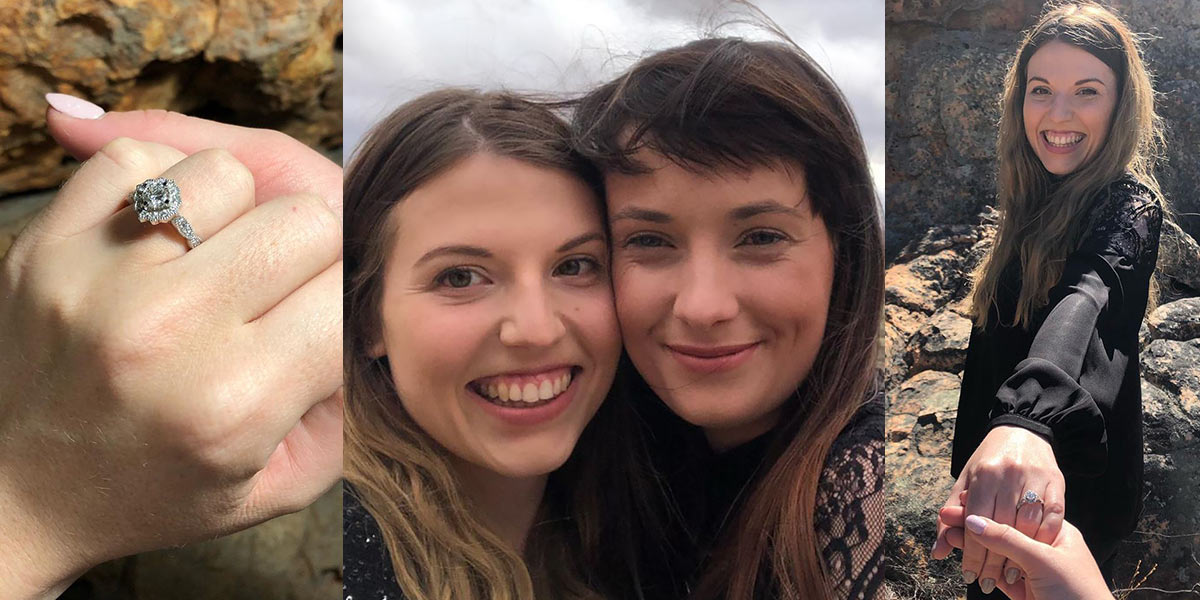Women’s Legal Centre applies to join Beloftebos case

Turned away by Beloftebos: Sasha-Lee Heekes and Megan Watling on their engagement day
The Women’s Legal Centre (WLC) says that the constitutional guarantee of freedom of religion is not justifiable grounds on which to unfairly discriminate against LGBTQIA+ people.
The Cape Town-based organisation announced on Tuesday that it has applied to be amicus curiae (friend of the court) in the SA Human Rights Commission (SAHRC) case against the Beloftebos Western Cape wedding venue which has refused to allow same-sex couples to marry on its premises.
The WLC said in a statement that it rejects “the worrying trend, increasing both globally and in South Africa, of using the right to freedom of religion to undermine the rights of LGBTQIA+ persons.”
Beloftebos’ Christian owners, Coia and Andries de Villiers, have been accused of violating the Promotion of Equality and Prevention of Unfair Discrimination Act (the Equality Act) by discriminating against same-sex couples on the basis of their religious beliefs about marriage.
Most recently, in January 2020, Megan Watling and Sasha-Lee Heekes, were rejected by Beloftbos when they sought to use the venue for their wedding. Another same-sex couple, Alex Thorne and Alex Lu, were also turned away in 2017.
Last year, the SAHRC took the owners of Beloftebos to the Equality Court in the Western Cape High Court.
The WLC believes it can offer “a feminist and gender lens as well as the appropriate application of freedom of religion in this case that has important consequences for the LGBTQIA+ community in South Africa”.
The WLC will submit to the court that “freedom of religion is not a gateway to unfairly discriminate and certainly does not justify setting aside section 14 of the Equality Act, and that the Beloftebos respondents’ hosting policy is unconstitutional to the extent that it does not allow same-sex couples to get married on their premises.”
The WLC will also argue that even that if the court were to find that wedding venues and service providers may refuse same-sex couples for religious reasons, Beloftebos do not qualify for such protection because they have hosted weddings for divorcees, as well as for Muslim and Jewish couples.
“This matter, and its outcome, will have a fundamental effect on how the rights to equality and dignity are to be balanced with the right to religion. This, in turn, will have important consequences for how those rights are applied to womxn in their diversity, and in particular, marginalised and vulnerable womxn”, said the WLC.
“The impact will not only stop at negatively affecting equality and religion but will also impact sexual and reproductive health rights, and specifically the ability for womxn in their diversity to make free and informed decisions about their bodies and reproduction, the right to bodily autonomy, the right to education, the right to health generally and could lead to other forms of violence, stigma and prejudice”, added the centre.
The Women’s Legal Centre is an African feminist legal centre “that advances womxn’s rights and equality using tools such as litigation, advocacy, education, advice, research and training”.
Leave a Reply